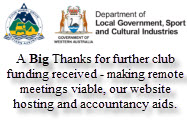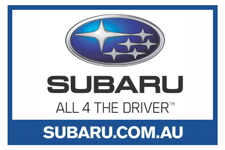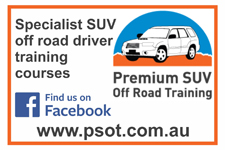
Bush Camping

Preston Beach 2021

Winnemia Project 2023

Turquoise Coast 2023

Action

Wedge Island 2007

Dirk Hartog Island 2022

Southern Beaches 2008

Preston Beach 2021

Wedge Island 2011

Lancelin Dunes 2010

Three Bights 2010

Preston Beach 2021

Lake Brown from Eaglestone Rock - 2018

Wickepin

Cape Laveque - 2011

Steep Point 2022

Anne Beadell Hwy

Tims Thicket 2019.jpg

Quaalup Quest - 2024

Quobba 2023

Anne Beadell Hwy Camping

Alice Springs to Coober Pedy - 2019

Nornalup 2011

Camp Fire Cookout 2022

Yeagarup Hut 2009

Yeagarup Beach 2009

Walpole 2023

Walpole 2022

MT Augustus/Kennedy Ranges 2010

Tonys Toodyay Trip 2010

Yeagarup 2018

Greenhead 2009

Pinjar & Gnangarra

Melangata camp oven cookout - 2021

Murray River Crossing

Nornalup - 2011

Kimberley Kapers 2011

Mt Observation 2023

Bungle Bungle 2011

Simpson Farewell 2009

Lake Leschenaultia 2023

Action

Walpole 2022

Turquoise Coast 2023

Capt Fawcett Track 2011

Southwest Coast 2022
Welcome to the Subaru 4wd Club of WA
Welcome to the Subaru 4wd Club of WA
while helping you to safely obtain the most from your car and show you new places to visit.
The following is a summary of our activities.
TRIPS: Day, full weekend, and extended visits to all parts of the State and Interstate.
The aims of these trips include viewing scenery and wildlife, Photography, visiting places of
historical interest or just getting away from it all with a group of friends. Many trips involve some 4WD to reach more remote places.
SOCIAL: Barbecues, parties, Annual Dinner, Fishing. Sporting Activities
MEETINGS: Guest speakers, environmental issues, films and slides of previous trips, demonstration of car and camping items.
SOCIAL: Barbecues, parties, Annual Dinner, Fishing. Sporting Activities
MEETINGS: Guest speakers, environmental issues, films and slides of previous trips, demonstration of car and camping items.
DRIVER EDUCATION: Theoretical and practical instruction in driving in sand, over rocks and other difficult conditions.
NEWSLETTER: Details of proposed trips, social events, trip reports and a variety of other useful information from members.
Examples of Club Activities
Day Trips - Mundaring Hills, beach driving, Dwellingup, Avon Valley etc.
Weekend & LWE trips - Margaret River, York, Wheat belt, Toodyay, Stirling Ranges etc.
Extended trips - Murchison, Great Southern, Goldfields, Pilbara, Gascoyne, Kimberley etc.
Sand Dunes -A chance to learn or improve your sand driving skills
Camp Oven Cookout - Learn the joys of Camp Oven Cooking in good company
Skills Day - Practice your driving expertise on WA's slippery ball-bearing gravel
Social activities - dinners, breakfasts, BBQ'S, bush dances, bowling, mini golf etc.
Tune-up Day - Opportunity to see how your vehicle works or tackle those minor jobs on the car with the help of experienced members
Progressive Dinner - Bring a dish, hop on a bus and enjoy a fun night in the metro area
Flora & Fauna - Visit the 'bush', National Parks, nature reserves and desert regions with knowledgeable Cub members
Camping - Experiencing the enjoyment of camping in the bush, cooking over and eating around a camp fire under a myriad of stars
while helping you to safely obtain the most from your car and show you new places to visit.
The following is a summary of our activities.
TRIPS: Day, full weekend, and extended visits to all parts of the State and Interstate.
The aims of these trips include viewing scenery and wildlife, Photography, visiting places of
historical interest or just getting away from it all with a group of friends. Many trips involve some 4WD to reach more remote places.
SOCIAL: Barbecues, parties, Annual Dinner, Fishing. Sporting Activities
MEETINGS: Guest speakers, environmental issues, films and slides of previous trips, demonstration of car and camping items.
TRIPS: Day, full weekend, and extended visits to all parts of the State and Interstate. The aims of these trips include viewing scenery and wildlife, Photography, visiting places of historical interest or just getting away from it all with a group of friends. Many trips involve some 4WD to reach more remote places.
SOCIAL: Barbecues, parties, Annual Dinner, Fishing. Sporting Activities
MEETINGS: Guest speakers, environmental issues, films and slides of previous trips, demonstration of car and camping items.
DRIVER EDUCATION: Theoretical and practical instruction in driving in sand, over rocks and other difficult conditions.
NEWSLETTER: Details of proposed trips, social events, trip reports and a variety of other useful information from members.
Examples of Club Activities
Day Trips - Mundaring Hills, beach driving, Dwellingup, Avon Valley etc.
Weekend & LWE trips - Margaret River, York, Wheat belt, Toodyay, Stirling Ranges etc.
Extended trips - Murchison, Great Southern, Goldfields, Pilbara, Gascoyne, Kimberley etc.
Sand Dunes -A chance to learn or improve your sand driving skills
Camp Oven Cookout - Learn the joys of Camp Oven Cooking in good company
Skills Day - Practice your driving expertise on WA's slippery ball-bearing gravel
Social activities - dinners, breakfasts, BBQ'S, bush dances, bowling, mini golf etc.
Tune-up Day - Opportunity to see how your vehicle works or tackle those minor jobs on the car with the help of experienced members
Progressive Dinner - Bring a dish, hop on a bus and enjoy a fun night in the metro area
Flora & Fauna - Visit the 'bush', National Parks, nature reserves and desert regions with knowledgeable Cub members
Camping - Experiencing the enjoyment of camping in the bush, cooking over and eating around a camp fire under a myriad of stars
| Metro Member $50 |
Social Member $40
|
|
Country Member $40
|
Renew Membership
Note that accounts get locked out at start of year if not renewed. - See below for instructions:
Payment can be made in person at a meeting. Eftpos is now available.
Or direct credited to the Club’s bank account
at Westpac: BSB 036-078 account 28-9726
Be sure to include your name before sending.
Code of Conduct
Subaru 4WD Club WA.
Principles
Respect
Respect people
Respect the environment
Respect the law
Fairness
Be fair to others
Ensure fair access for all
Care
Take care of people in your group
Care for the environment
Take care of your vehicle and equipment
Code of Conduct
General
The trip leader should call a
meeting prior to
departure, or during the trip to outline important aspects.
Keep to the laws & regulations
for 4WD
vehicles (they may change from state to state).
Follow club convoy procedures.
Ensure vehicles and equipment are in sound condition.
Carry enough fuel, water, food and spares.
Have adequate car insurance.
Carry a first aid kit. Ensure there is a group first aid kit. Ensure you have enough of your personal medications.
Keep the trip leader informed:
Advise the trip leader of any medical condition or needs.
Do not leave a convoy or camp without advising the trip leader.
Carry a survival pack with you if you leave a campsite for an extended walk.
Respect the cultural, heritage and environmental values of public and private land
Respect flora and fauna.
Obey legal restrictions on use of public and private lands.
Obtain permission before driving on private land, including Aboriginal land.
Leave livestock alone, and gates,
wells and
waters as found or better.
Report damage
to owners.
In remote areas travel with another vehicle and have RFDS or equivalent radio or satellite phone communications.
Vehicles
Keep your vehicles in a safe and sound mechanical condition
Carry (with secure mountings) an
approved fire
extinguisher.
Do a spot check of your vehicle every day.
Assist others where possible.
Get and use the Club check lists that are appropriate for your trip.
Locking wheel-nuts are usually a
nuisance in
the bush. Take them off for the trip.
Driving/traveling
Stay on formed tracks at all times.
This
limits the risk of bogging and environmental damage.
Drive carefully. On trips you are often heavily laden and the vehicle will be slower to respond.
Keep a safe distance from the car in front.
Allow other road users to pass safely.
Radio communication. Keep CB
conversations to
a minimum to ensure important information can be broadcast quickly to the whole
party about emergencies, safety issues, turns, conditions, etc. Periodically do
a check call.
Let the convoy know when you take a
stop.
(E.g. for photo, shop or toilet).
Environment and health
Fire
Wood is a precious environmental
commodity.
Keep fires as small as practicable. If
necessary take wood with you (e.g. remote desert areas). Do not cut standing
trees.
Check and obey fire restrictions. A total fire ban applies to all types of fuel except electricity, so be prepared.
Rake vegetation away before digging a fire-hole to help covering and restoring the site when you leave.
Don`t let your exhaust emit sparks.
Leave a sensible distance to the next vehicle in case one catches fire
When parking on a track or camping,
try to
choose a flat open area with minimal dry grass.
Camping
Practise “Leave no trace” camping
Keep the environment clean.
Carry your own, and maybe other people’s rubbish home. Don’t camp under the drop zones of trees or in dry river beds.
Camp at least 30 metres from any water course or watering hole to allow access for stock and fauna.
Don’t camp too close to others in case of fire.
Washing
Do not use soaps or detergents in waterholes, streams or lakes.
Wash well away from waterholes.
Follow strict hygiene rules
Bury all used toilet paper.
Bury faecal matter (poo) more than 30cm deep.
For groups, a communal pit toilet is a good idea.
Wash your hands before handling food.
Etiquette
Respect other people’s rights
Have a neighbourly approach, e.g. make minimal use of generators, floodlights and music. Snorers should ensure they do not affect other campers.
When spraying insect repellents or
similar
sprays move downwind of other people.
Sensitive complaints or serious
comments are
not normally broadcast on radio and are to be made to the Trip Leader off-air
in private.
Convoy Procedures
FORMALITIES.
The trip leader shall
call a meeting prior to departure and advise the salient points for the
day. Several meetings may be needed during a long or variable trip to
update. This is also a question time.
The trip leader may call on others for assistance if required.
An attendance/ registration form should be completed to record participants.
A Tail end Charlie (TEC) shall be
appointed, and may be changed
during the trip. This will also apply if there is a need for a split
convoy due to a large number of vehicles. Alternatively, a mid-point
Charlie may be appointed.
If the Club first aid kit, fire
extinguisher, recovery gear or other
equipment is taken, all present are to be advised who is the holder.
All vehicles shall be in a roadworthy condition and have comprehensive or third party insurance.
Each driver is at all times responsible for vehicle preparation, and passengers, including children and pets.
Fuel tanks shall be full prior the meeting point for the trip.
All members are strongly encouraged to have their own personal first-aid kit, and fire extinguisher in their car during any trips. Also a current medical information form for each person in the glovebox in case of an emergency.
CONVOY.
Each driver shall
assume responsibility for the vehicle behind it, and is to wait at
corners, deviations or obstacles etc. to ensure the following vehicle
knows where to turn and how to pass the obstacle.
Both to acknowledge by CB radio or flash of headlights or other agreed signal
The trip leader may allocate a
sequential number to each vehicle, but
has discretion to change the order. Names may be used in a small or
informal convoy. Participants may request a change in convoy positions.
A vehicle wishing to leave the convoy must inform the leader or (TEC) and confirm details for re-joining if applicable.
Vehicles without CB are to be
positioned between vehicles that have
CB. These three vehicles shall arrange their signals prior to starting.
The leader should endeavour to arrange hire of club CB sets when
required.
DRIVING.
Road rules and laws must be observed at all times.
Drive carefully. You are heavily
laden, the vehicle will be slower to
respond, and the environment will be trying to trap you with dust,
rocks, stakes, branches, bumps and bogs.
The trip leader may give warnings on track obstacles. These should be repeated down through the convoy.
A safe distance between cars is to
be allowed at all times. Allow a
lot more than usual. This allows other people to safely `leapfrog`
through the convoy. The convoy shall endeavour to assist others to pass
safely through.
Overtaking non-convoy vehicles must
be done in a legal manner. DO NOT
rely on any CB information. No vehicle shall overtake any other convoy
vehicle unless in an emergency, or by trip leaders instruction.
Headlights may be on low beam in daylight (Daytime Running Lights (DRL`s). Fog lights are NOT to be lit.
When an obstacle such as a hill,
bog, detour or sand is reached, one
vehicle at a time is to proceed and call the next vehicle through when
all is clear and parking is adequate past the obstacle.
If there is a need to go back due to
an obstacle, the convoy should
do so in the easiest way. Eg: the last in line may reverse, or turn
around and go back. The trip leader may regroup the convoy after the
exit.
When recovery is required, only
necessary people are to be present.
Everyone else must remain at least 2 times the winch cable or snatchem
strap length away. The `equipment operator` will be in charge of all
proceedings, and responsibility lies with the vehicle driver or owner.
When a vehicle is towed, correct
traffic authority procedures shall
be followed (less than 4 metres and a flag in the middle of the
towrope).
In the event of an accident,
vehicles must clear the area to give an
unobstructed approach to emergency vehicles, including club vehicles
with the club first -aid kit, winch etc.
All gates and property are to be left as found.
CB RADIO.
CB conversations
should be limited to approximately 15 seconds and allow 5 seconds before
the next transmission. This is to allow others to give an instruction,
emergency or other information.
Communications must be maintained from first to last vehicle, by relaying messages if need be.
Channel 16 is usually the club`s communication channel. The trip leader will inform you if a different channel is used.
In the event of the trip leader
asking a general question to the
whole convoy (eg: fuel or toilet stop), the replies should start from
the number 2 position working to the rear. Use position number or name
when giving or acknowledging information.
Upcoming Trips
23Nov 2024
24Nov 2024

24Nov 2024

30Nov 2024

19Jan 2025
24Jan 2025
26Jan 2025

15Feb 2025

10Dec 2024
Next club meeting
(Click for details)
Current Club Magazine

2024 Nov Mag
Our Facebook page...
Like us on facebook...
Club Videos
Recent Photos

Jarrahdale Jaunt - 2 |

Julimar Forest Vehicle Training & Camp Trip |

Quaalup Quest II |

Jarrahdale Jaunt - 2 |

Jarrahdale Jaunt - 2 |

Julimar Forest Vehicle Training & Camp Trip |

Jarrahdale Jaunt - 2 |

Quaalup Quest II |

Jarrahdale Jaunt - 2 |

Julimar Forest Vehicle Training & Camp Trip |



















